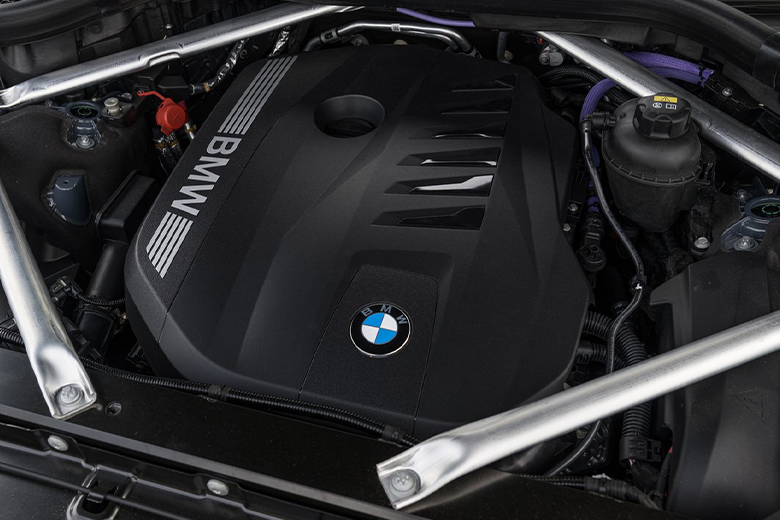5 Maintenance Mistakes That Could Ruin Your BMW X7 Engine!

October 31, 2024
5 Critical Maintenance Mistakes Every BMW X7 Owner Must Avoid to Protect Your Engine
Your BMW X7 engine is a sophisticated piece of machinery. Designed for power and luxury, it performs at its best with proper care. However, even small maintenance mistakes can damage it. These mistakes may seem minor but can lead to costly repairs or engine failure over time.
Knowing these maintenance errors can save you costly repairs. They can also extend your BMW X7 engine's lifespan. Let's explore these mistakes and how to prevent them. They will keep your engine healthy and your ride smooth.
Neglecting Regular Oil Changes: A Recipe for Disaster
Oil is the lifeblood of any engine, specifically of a high-performance machine, like the BMW X7. The parts need the smooth running and lubricating that the oil provides. If those basic needs are not met with new oil, things will worsen. Friction will rise, overheating will occur, and your engines will wear out. Without clean oil, sludge builds up. It causes the parts to grind against each other, reducing performance. Ignoring changes in oil affects fuel consumption. Old, dirty oil will hurt engine performance and increase fuel use. The BMW X7 engine needs precise, powerful, and efficient lubrication. Dirty oil can harm the engine and exhaust system. It causes inefficient combustion.
To avoid all these by maintaining the schedule for oil change. Most BMW X7 normally recommend oil change after 10,000 miles. Check the owner's manual for the specifics. The oil changes keep your engine clean, so it runs well. This generally ensures your vehicle performs as expected and lasts for a long time.
Ignoring Warning Lights: A Costly Oversight
Ignoring the warning lights is one of the fastest ways to damage a BMW X7 engine majorly. The BMW X7 dashboard has lights for various engine systems. They range from oil pressure to coolant temperature. These lights are not for ignoring. They alert you to potential issues that need your attention. The most critical light is the "check engine" light. Sometimes, it may signal a minor problem. Other times, it indicates serious trouble that could damage the engine if ignored. In the worst cases, ignoring it can increase the repair bill or result in a blown engine.
One can prevent costly mistakes on one's dashboard. Just get the vehicle checked to understand a warning light. A quick response to a warning light may save thousands in repair costs. It could also prevent further damage to the engine. The technician will check and fix any issues.
Neglecting the Cooling System: Silent killer
The cooling system in your BMW X7 is what cools your engine. Most engines fail due to overheating. Proper maintenance will keep your cooling system from overheating your engine. Neglecting your cooling system causes breakdowns. This can overheat and damage your engine. Coolant leaks are one of the common problems. Worn-out or damaged hoses are responsible for most leakages.
Coolant leaks may seem minor. But, they can harm the car's cooling system. The engine will run hotter, warping its parts. This will need costly repairs or replacements. Check the coolant levels and hoses for wear or leaks. Do this often to prevent cooling system problems. BMW suggests a change in coolant after 30,000 miles. This will keep your engine at the right temperatures, extending its life.
Not Remembering the Air Filter: Choking your engine.
The BMW X7 engine air filter lets clean air into the combustion chamber. Dust, debris, and other contaminants accumulate inside the air filter over time. A dirty air filter limits fresh air to the engine. This reduces engine efficiency and increases fuel consumption. The less air that the engine is allowed to use, the more it tends to fail to burn up the fuel properly. Struggling this way worsens acceleration and overall performance. It robs BMW X7 owners of the driving pleasure they paid for. It also allows for higher emissions, harming other parts of the engine. If it is allowed to become dirty, this makes it expensive.
This will avert air filter problems. It must be changed every 15,000 to 30,000 miles, depending on the driving conditions. Replace air filters regularly. This keeps the engine breathing. It lets the engine perform at its best and be fuel efficient and long-lasting.
Skipping Tyre Rotations: A Hidden Danger
Rotating tyres may not seem relevant to an engine. But it does affect your BMW X7's performance and safety. Uneven tyre wear affects vehicle balance and handling. The engine strains as it works harder to compensate. This will cause excessive wear of engine parts and poor fuel efficiency.
In a BMW X7 with an advanced drivetrain, skipping tyre rotations upsets the car's balance. This makes it hard for the engine to evenly distribute power. This balance affects stability. So, the ride would be bumpy, and the engine would wear faster. Every 5,000 to 7,500 miles could bring about the tyre's equal wear. It would improve efficiency and reduce engine stress. This is that one little move which matters most for the well-being of your BMW X7.
Concluding Thoughts
BMW X7 engine maintenance goes beyond just the most basic requirements. Avoid these common mistakes and avoid costly repairs for your vehicle's performance. Key steps are: change the oil, watch for warning lights, maintain the cooling system, replace the air filter, and rotate the tyres. Every maintenance step sounds petty. However, it all contributes significantly to the maintenance of your engine's health. So, fixing these issues will keep your BMW X7 a reliable, powerful luxury car.